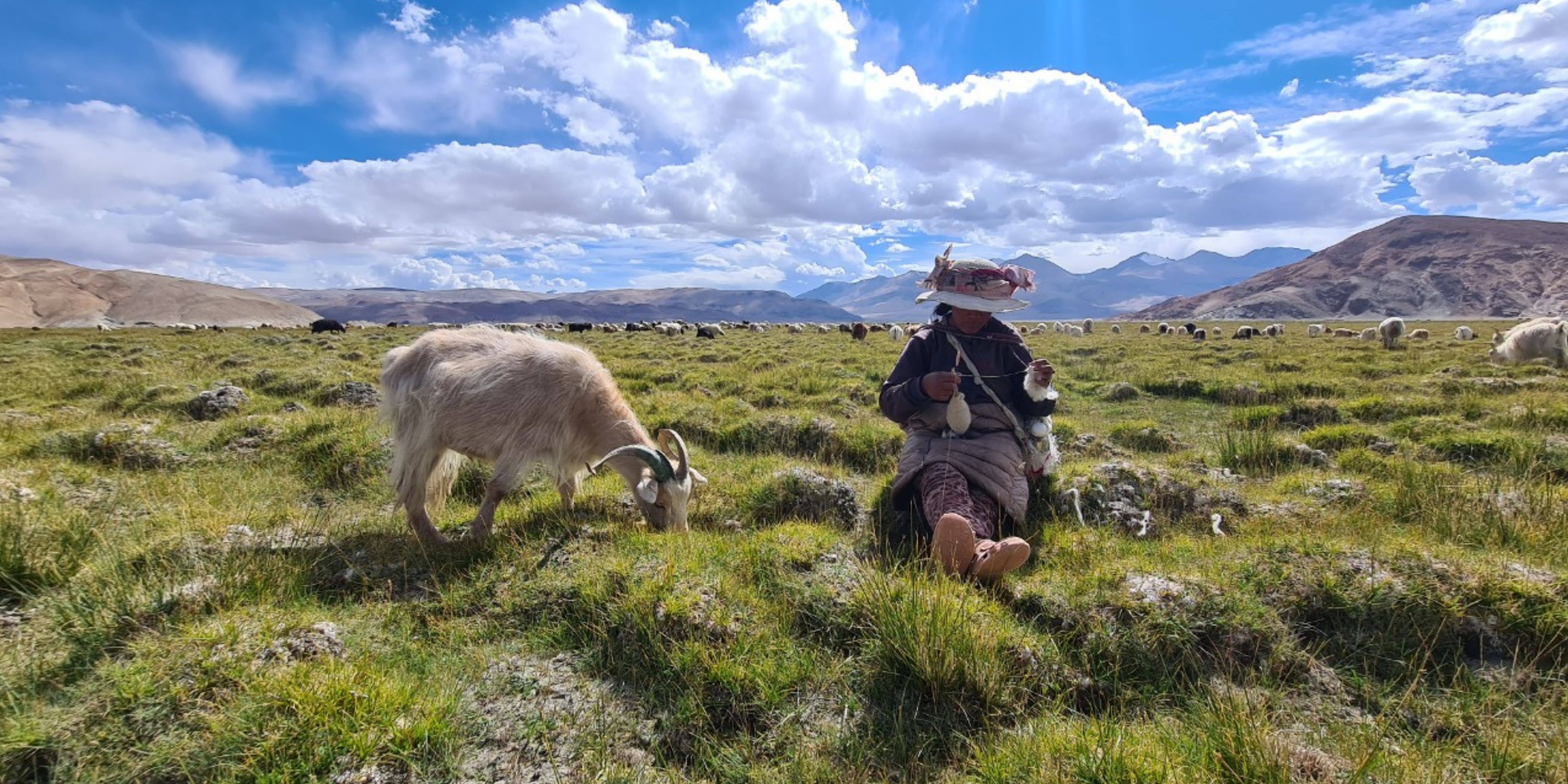
A growing network of institutions and people.
Mainstreaming biodiversity science, and its relationship to human well-being.

Mainstreaming biodiversity science, and its relationship to human well-being.
The Biodiversity Collaborative is a growing network of institutions and individuals that promote biodiversity research and conservation to enhance human well-being.Members of the Collaborative have been involved in the Preparatory Phase Project of the National Mission on Biodiversity and Human Well-Being and in public engagement and outreach to make biodiversity and its links to human well-being a part of society’s imagination and discourse.
India’s biodiversity feeds its people, enhances their health security, and shields them from environmental disasters, including calamities associated with climate change. Biodiversity has also been a perpetual source of spiritual enrichment, intimately linked to our physical and mental well-being. As people, and as a nation, we owe our unique identity to our biocultural diversity.
The neglect of biodiversity science in universities and research institutions is apparent. In most of our academic institutions, the study of life is restricted largely to the study of cells and molecules — life at microscopic and sub-microscopic levels. In many of our research institutions, simple, disciplinary and sectoral approaches to a complex science that is shaped by human interactions with nature, remain pervasive. Biodiversity data are currently distributed in various siloed databases. These databases do not communicate with each other.
There is extensive knowledge and information on the biodiversity of India in its cultural heritage as well as its scientific expertise. Further, there are still areas and habitats that are unexplored and new species are being discovered every year. While there are many innovative initiatives to document biodiversity in India, integration and consolidation of biodiversity data into a national effort using the modern concepts and tools of ecoinformatics is lacking. India, with its technological, cultural and scientific power currently lags behind parallel global initiatives.
This National Mission focuses on addressing these gaps which will enable India to become a global leader in biodiversity management. Integrating various Indian initiatives and a wide spectrum of biodiversity related themes, ranging from traditional knowledge to health, sustainable use and conservation under a National Mission will be a valuable, integrated, inter-disciplinary and comprehensive initiative to address issues of conservation, sustainable development, resilience to climate change, health and overall human well-being.
The Biodiversity Collaborative is home to various experts from diverse academic and professional backgrounds
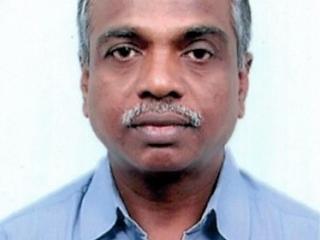
He is Fellow, Suri Sehgal Centre for Biodiversity and Conservation at the Ashoka Trust for Research in Ecology and the Environment.
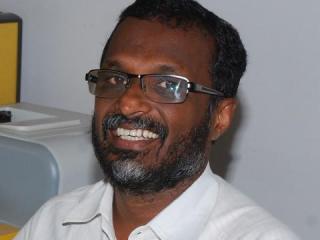
He is Senior Fellow at the Ashoka Trust for Research in Ecology and the Environment (ATREE), where he serves as Program Leader of Ecosystems & Global Change.
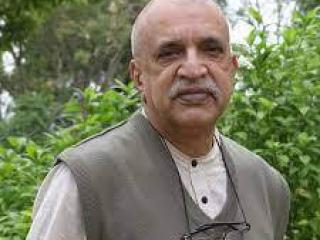
He is the managing trustee of FRLHT, and Founder and Vice Chancellor of TDU. He is a recipient of Columbia University’s International Award, and was conferred the Padma Shri by the Government of India.
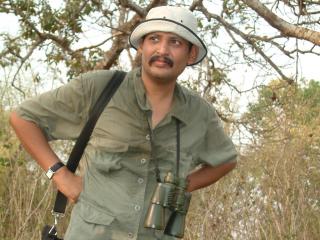
He is Dean, School of Environment and Sustainability at the Indian Institute for Human Settlements and also Senior Adjunct Fellow at ATREE. He is a field ecohydrologist and landscape ecologist.

She is Global Director at the echo network, a social innovation partnership of over 1000 members. She is also a faculty member at NCBS-TIFR in Bengaluru, and Special Scientific Envoy to India with the Danish Academy of Technical Sciences.
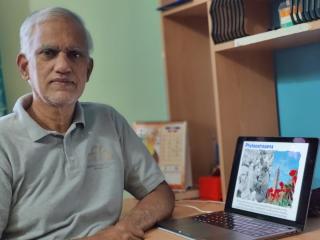
He was ICAR Emeritus Scientist at the University of Agricultural Sciences, Bangalore. Currently he is Senior Professor at IIT, Jammu. He is an elected Fellow of the Indian Academy of Sciences, and a recipient of the State Environment Award,
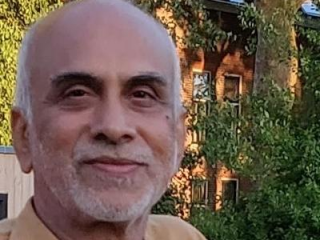
He is Honorary Fellow at Metastring Foundation and has been associated with Stand Life Sciences in the area of Biodiversity Informatics. He also serves in the executive committee of the Taxonomic Database Working Group.

She is a molecular ecologist from Bangalore investigating population genetics and the evolutionary history of mammals at the National Centre for Biological Sciences (NCBS). Today, her name is synonymous with tiger conservation in India.
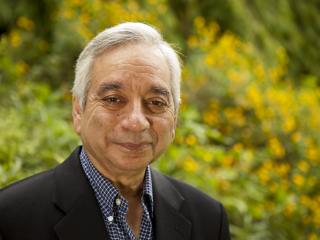
He is Distinguished Professor of Biology at the University of Massachusetts Boston, and the Founder-President of the Ashoka Trust for Research in Ecology and the Environment (ATREE). He is a recipient of the Linnean Medal in Botany.

He is Fellow (Associate Professor), Centre for Biodiversity and Conservation at ATREE; Fellow (Intermediate), Wellcome Trust/DBT India Alliance Clinical and Public Health; Adjunct Research Fellow at University of KwaZulu-Natal.
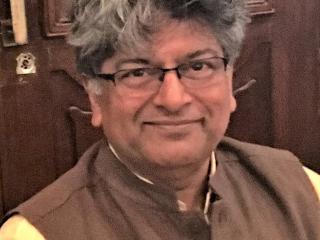
He is Adjunct Faculty, BioSystems Science and Engineering, Indian Institute of Science. He is also the Founder & Director, Metastring Foundation, and Commissioner of the Lancet Citizen's Commission on reimagining India's health System.
He is a Senior Fellow (Associate Professor) at the Suri Sehgal Centre for Biodiversity and Conservation. Dr. Ravikanth’s research over the last 20 years has focused on applying molecular tools in the context of tropical forest conservation
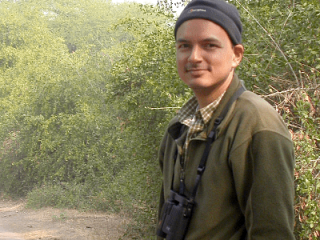
He is a senior scientist at the Nature Conservation Foundation (NCF). As an ecologist he works in nature education, citizen science, and in trying to get people excited and curious about nature.

He is the Chief Executive Officer of Metastring Foundation. As a wildlife biologist and conservation scientist, he has pioneered research on Asiatic Lions and helmed multiple conservation organisations in India.
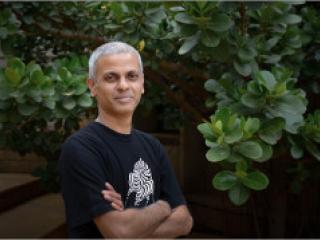
He is Professor of Ecology and Evolution at the National Centre for Biological Sciences (NCBS). He has pioneered research on tropical savannah ecosystems and works on the Western Ghats.
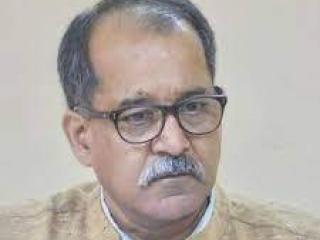
He is the Chief Operating Officer & Registrar, TDU. He was earlier the Principal Chief Conservator of Forests and Head of Forest Force, Forest Department, Government of Tripura.
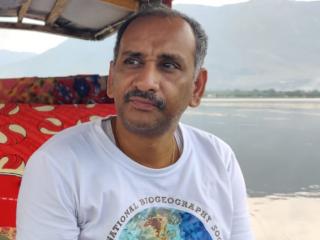
He is Senior Fellow and Convenor, SMS Foundation Centre for Biodiversity and Conservation at the Ashoka Trust for Research in Ecology and the Environment.
